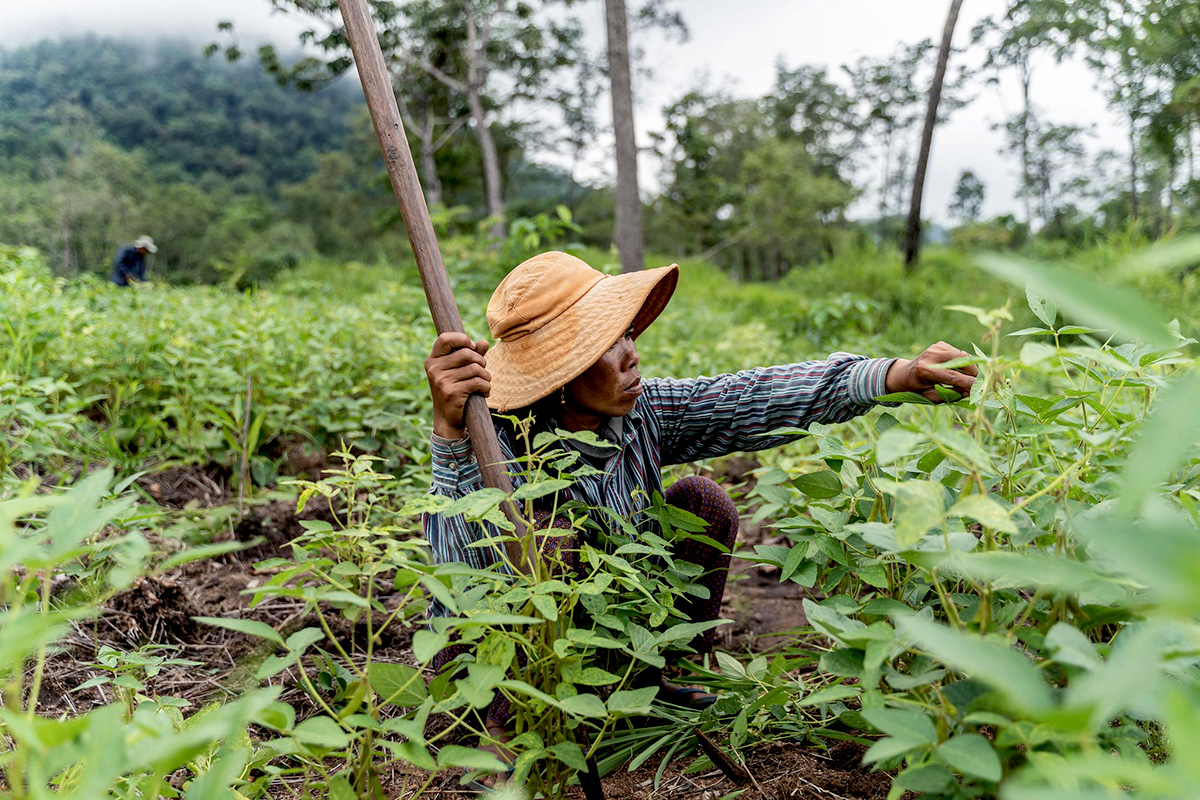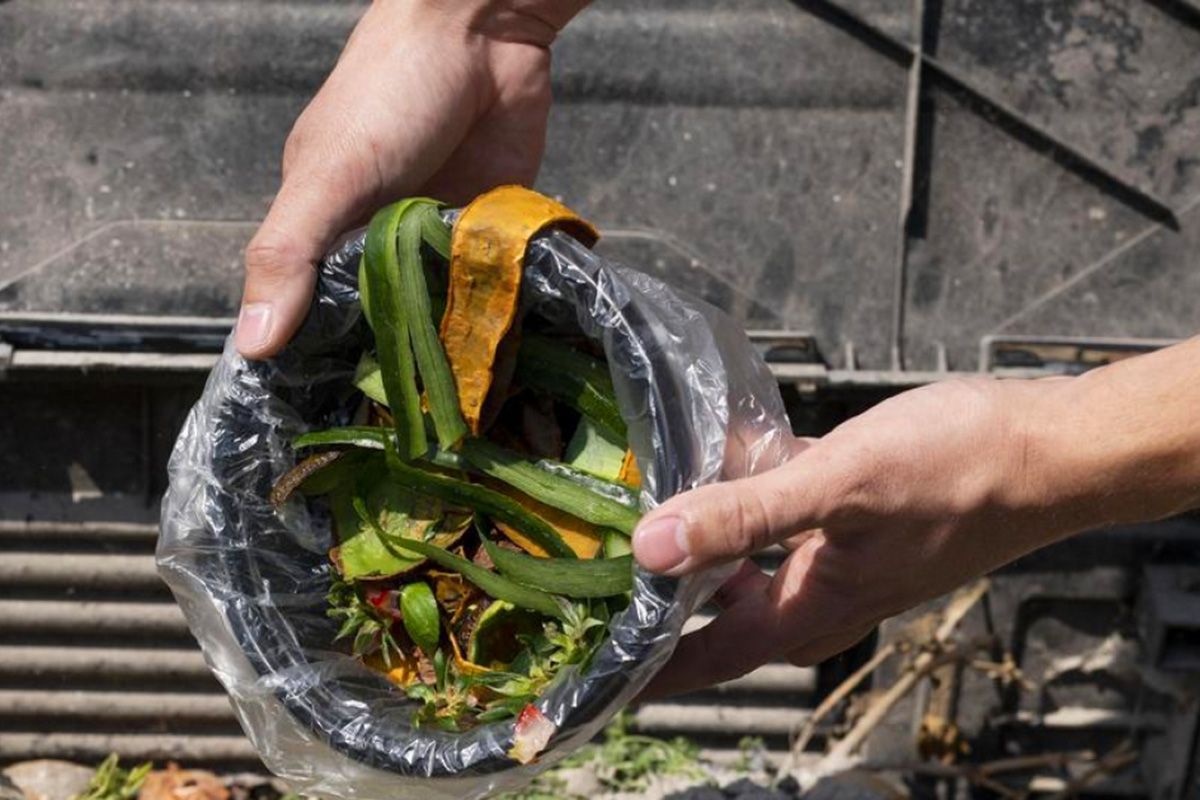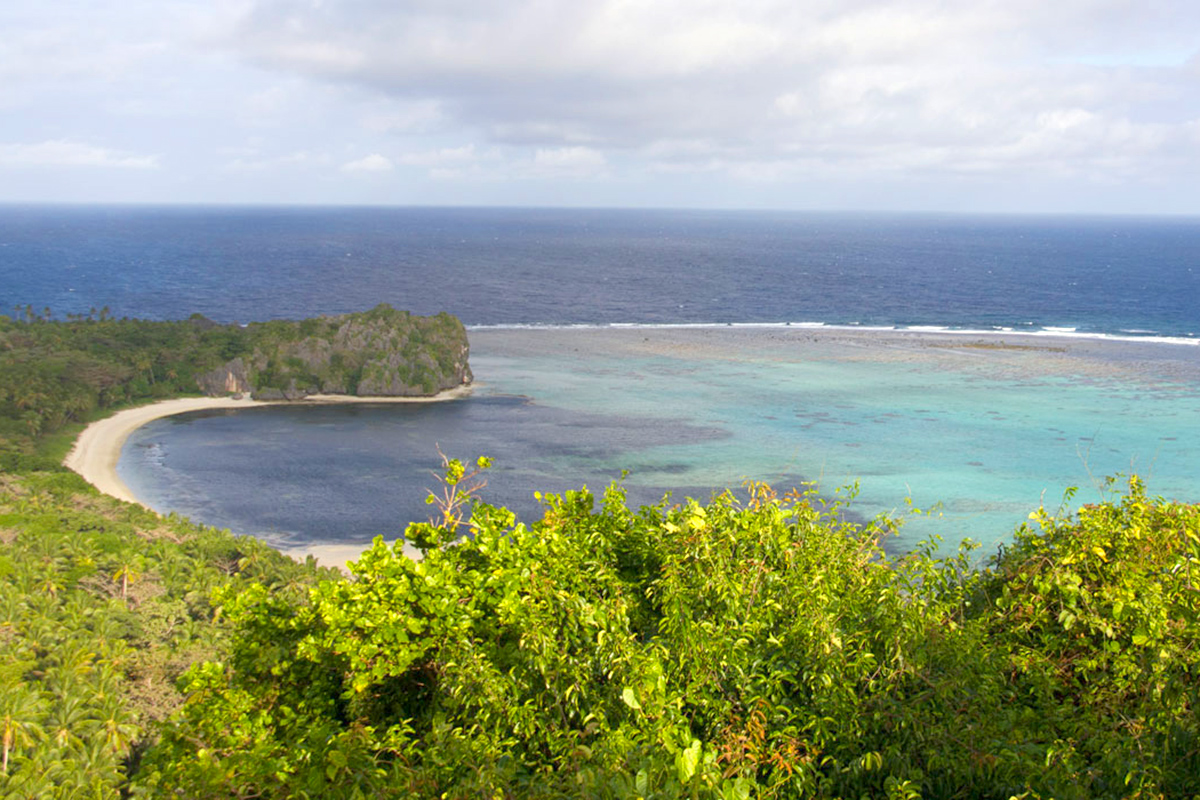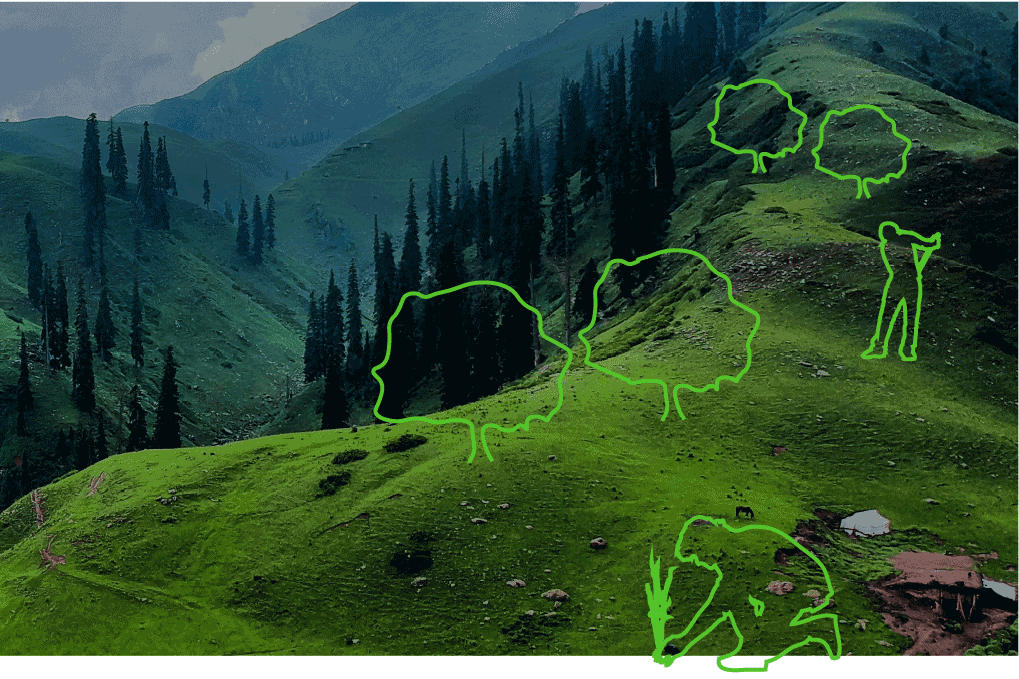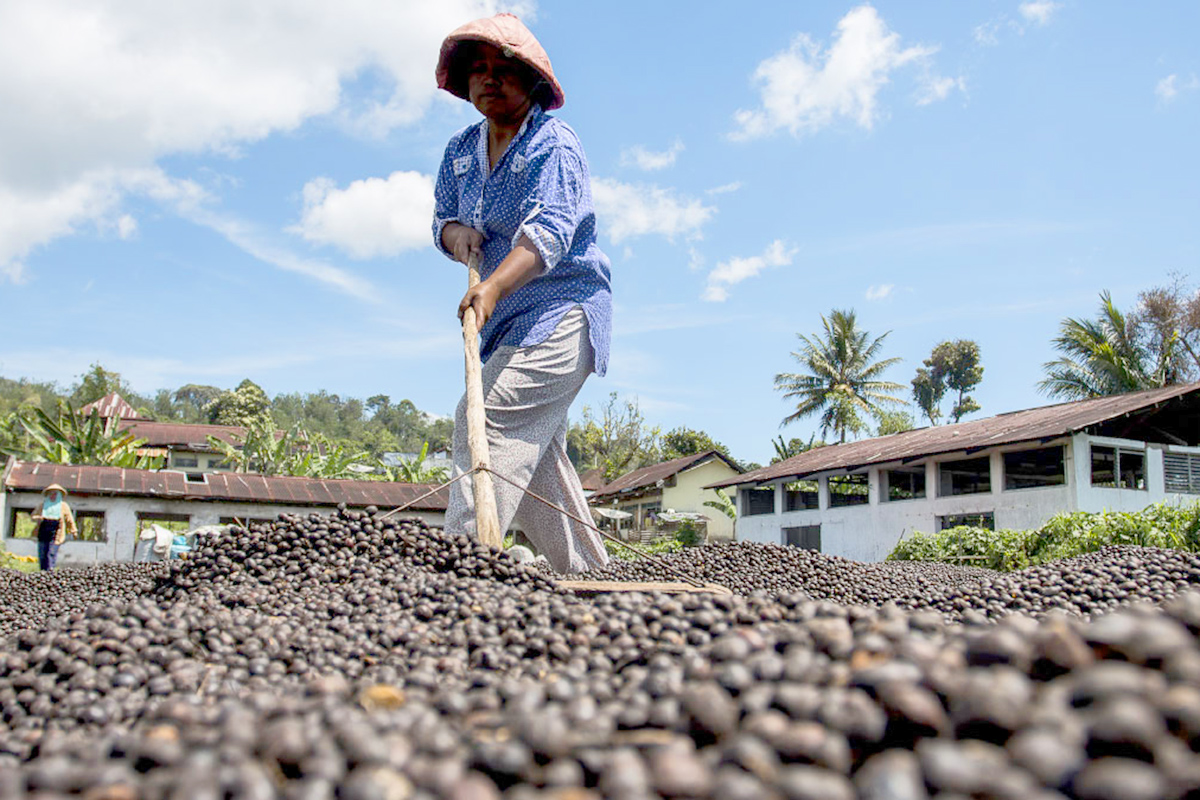On the Kenyan coast, a UNEP partner, the Watamu Marine Association, has developed a business model that keeps beaches clean, bringing together local communities and the tourism industry to collect, repurpose and recycle plastic waste. This small-scale circular economy has big potential and can be replicated anywhere in the world there is a coastal tourism industry, restoring coastlines and addressing the global issue of marine litter.
Natural Resources and the Environment
FAO and partners equip forest communities with the technical capacity and funds needed to address forest degradation and promote restoration activities, along with the Cambodian government.
1.3 billion tonnes of food is either lost or wasted, says the UNEP Food Waste Index. Composting is one of the best options for managing organic waste while also reducing environmental impacts.
UNDP engages brands, local processors, herder groups, development partners, civil society organizations and public authorities to advance sustainability in cashmere production.
Tasked with using geospatial technology to count trees in a remote region of northeast Nicaragua Rene Zamora, a Forest Economist from the World Resources Institute (WRI), spread the word so that local people could help. Most of his recruits worked in cattle ranching and agriculture and had never used a computer before. The end result was an FAO-WRI “mapathon”, where local people first learned the necessary computer skills and data-collection techniques before applying this knowledge, all with the goal of creating a high-resolution map of where the region’s trees are.
Janez Potočnik, former European Commissioner for Environment and Science, and Izabella Teixeira, who served six years as Brazil’s environment minister, met more than a decade ago at a gathering of the Convention on Biological Diversity in Nagoya, Japan. They were there as negotiators hoping to set clear targets that might safeguard the natural world. Each understood the stakes as they advocated for science-based principles to guide political action. They recently met with UNEP to discuss the study and the massive international effort needed to halt biodiversity loss.
In this month’s episode, IFAD celebrates World Environment Day through developments protecting the environment; Africa Climate Week and innovations from East and Southern Africa; and the International Day of Family Remittances, a day celebrating a vital source of funding for people living in rural communities in the developing world.
Other features include a new report on nature-based solutions in agriculture, the environment as inspiration for a UN Human Rights Champion, the changes to environmental policies in Afghanistan and organic farming in China, and a new group called Chefs 4 the Planet.
By taking profits of nature-based solutions, we can vastly improve human well-being and prosperity. This year’s report calls for investments in nature-based solutions to triple by 2030 and to increase four-fold by 2050 from the current level.
UNEP reports on Madrid’s drive to connect a series of existing woodlands, creating a 75km-long green belt around the city. Once complete, the forest will cover 35,000ha. It will help the city improve its air quality, counter climate change, and create a wealth of recreational opportunities for residents.
There has never been a more urgent need to revive damaged ecosystems than now. Ecosystems support all life on Earth. The healthier our ecosystems are, the healthier the planet - and its people. The UN Decade on Ecosystem Restoration (2021-2030) aims to prevent, halt and reverse the degradation of ecosystems on every continent and in every ocean. It can help to end poverty, combat climate change and prevent a mass extinction. It will only succeed if everyone plays a part.
From forests to peatlands to coasts, we all depend on healthy ecosystems for our survival. But their degradation is already affecting the well-being of 40% of the world’s population. This World Environment Day 2021 (June 5) calls for urgent action to revive and heal our damaged ecosystems. Join the “Reimagine. Recreate. Restore” campaign led by the UN Environment Programme and welcome the UN Decade on Ecosystem Restoration, a 10-year global rallying cry to make peace with nature, end poverty, combat climate change and prevent a mass extinction.
Financial backing from the GEF, FAO, UNEP and other international conservation partners has been set out to protect and restore mangrove species and safeguard the livelihoods of fish dependent communities in and around the Siné Saloum Delta. The programme, called the Coastal Fisheries Initiative, invests in restoring degraded mangroves so that they can retain their important role in balancing ecosystems. The Initiative is regenerating land and replanting large areas of mangroves, while also working with communities to rethink how they utilise and conserve them.
It is crucial that we invest on a large scale in nature-based solutions that help our planet recover, while creating jobs. The UN’s report State of Finance for Nature: Tripling investments in nature-based solutions by 2030 analyses global investment flows into nature-based solutions and identifies future investments to meet biodiversity, climate and land restoration targets. The report is being launched at the World Economic Forum event, Climate Breakthroughs: The Road to COP26 and Beyond, which aims to accelerate the global transition to a zero-carbon economy.

